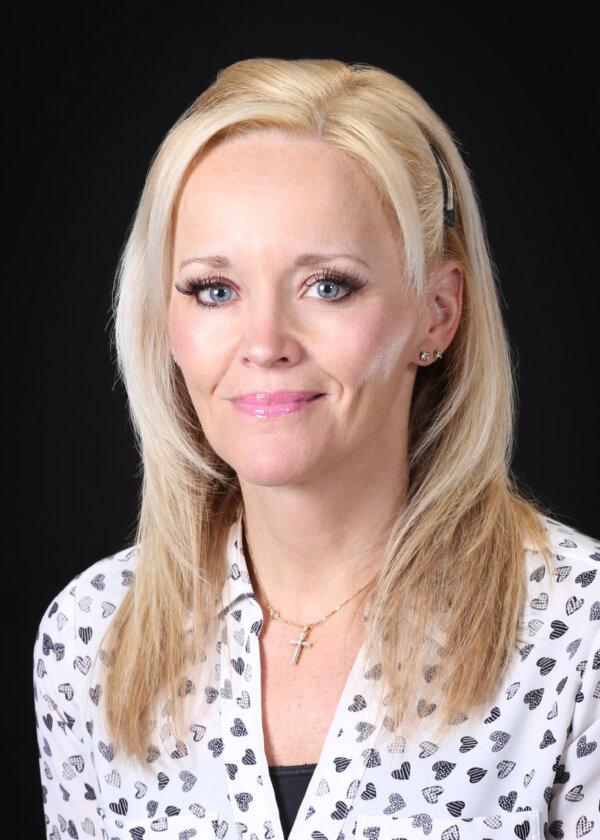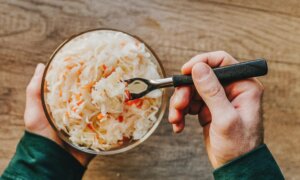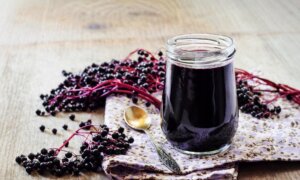As millions embrace Sober October’s 31-day break from alcohol, experts say that true sobriety extends far beyond temporary abstinence. From Hollywood royalty to health practitioners, addiction specialists are advocating for a more comprehensive approach to recovery that addresses substance use as well as the full spectrum of behavioral dependencies plaguing modern life.
While Sober October participants might focus on avoiding alcohol for a month, addiction specialists suggest that lasting recovery requires addressing deeper issues—whether the dependency involves prescription medications, gambling, compulsive shopping, or excessive screen time. Their insights offer valuable lessons for those battling serious addictions and anyone seeking a more balanced, conscious approach to life’s many temptations.
Getting Real and Getting Help
Achieving sobriety encompasses more than just abstaining from substances—it involves disillusionment and the recognition that even excessive amounts of good can turn harmful.
The Need for Outside Help
Sean Brosnan, a licensed professional counselor, knows exactly what that feels like. Growing up in Hollywood, he faced significant loss when his mother, actress Cassandra Harris, died from ovarian cancer when he was 8 years old. In an interview with The Epoch Times, Brosnan reflects on how his father’s connections opened doors for him but how he often chose to walk through the wrong ones.
As a result, he fell into alcohol and drug use, faced legal troubles, and found himself in and out of jail. It took him a decade to achieve just 90 days of sobriety.

Sean Brosnan, licensed professional counselor and addiction and recovery specialist. (Courtesy of Sean Brosnan)
As a psychotherapist specializing in addiction and recovery, Brosnan aims to assist others facing similar challenges. He encourages people to find their own paths.
“Everyone’s story is unique, and I do believe there are many ways to skin a cat,” Brosnan said. “After exploring the work of Carl Jung, Viktor Frankl, and Ian McGilchrist (among others), I was able to see such maps with a mystical perspective and deep structural meaning.”
“Taking drugs and drinking were my rituals, and now I implement healthier ones,” he added.
Individualized Care
Lise Battaglia also recognizes the uniqueness of everyone’s story. As a certified addictions counselor and holistic recovery coach who specializes in prescription medication recovery, her key focus is the importance of personalized care.

Lise Battaglia, holistic addiction recovery coach, says the need for personalized care is indispensable. (Courtesy of Lise Battaglia)
Battaglia and one of her patients, Greg, appeared in the documentary “Introducing Homeopathy – The Film,” which chronicles Greg’s recovery from a dependence to benzodiazepines, which he took following his doctor’s prescription. Benzodiazepines are a class of drugs that slow down nervous system activity, inducing sedation and relieving anxiety.
Although never having to recover from substance abuse, Battaglia found herself on a long road of pain recovery after a car accident. She grew up in a family that was proactive and took responsibility for its health, but it wasn’t until she found homeopathy that she felt she had found a treasure.
“I guess I was open, curious, kind of inviting more effective care—so I discovered homeopathy by accident, and my first remedy removed the lingering pain six years after the accident. When that happens, you ask, ‘What else can these little white pills do?’” Battaglia compiled her many years of professional education and knowledge of alternative and conventional medicine to become a licensed and certified addiction recovery specialist.
Personal Changes
Melissa Huray, a licensed addiction counselor and author of “
Blackout to Blessing“ and ”Radical Freedom: Breaking the Chains of Addiction for Good,” values lifestyle interventions as an extremely effective measure of sobriety.

Melissa Huray, licensed addiction counselor and author (Courtesy of Melissa Huray)
Having struggled with alcohol addiction from the age of 15 to 30, Huray entered the field to help others. She identifies three critical factors that influence a client’s recovery outcomes:
- Level of engagement (the addicts’ desire to achieve sobriety)
- Extratherapeutic factors (family support and actions toward goals outside of treatment)
- The therapeutic alliance (the relationship with the counselor and peers in the treatment program)
Why People Seek Sobriety
Brosnan recognizes that though each person’s story is unique, there are four common reasons people seek sobriety:
- Too many consequences
- Overwhelming emotional and physical pain
- Relationship issues
- A specific goal or cause
For him, all four reasons played a role.
“It was the birth of my daughter that sent me on this quest, she was the catalyst to my journey and it’s through being a father to a daughter that I’ve learned what it means to be a man. To be sober mentally, spiritually, emotionally, and physically,” Brosnan wrote in an email to The Epoch Times.
Types of Addiction Management
Recognizing the need for professional help during crucial transitions in recovery, Battaglia highlighted the differences between conventional and holistic approaches to addiction management in an interview with The Epoch Times.
Conventional Approaches
“The conventional medical system is comprised of behavior modification and medication, sometimes electroshock therapy or transcranial magnetic stimulation (TMS),” she wrote in an email. “[It] often keeps people as patients, replacing street drugs with prescription medications.”
While these methods can yield immediate effects, they seldom free people from the cycle of dependence since they continue to rely on substances. The ultimate goal is to liberate the person from addictive behaviors.
Battaglia said she has deep respect for Alcoholics Anonymous for fostering awareness and accountability through its meetings, which serve as invaluable tools for understanding the emotional triggers that prompt substance use. In a supportive and self-directed environment, participants can cultivate greater self-awareness.
Note: People addicted to substances, especially opioids, benzodiazepines, or alcohol, may need an in-patient clinic for safe withdrawal due to the risk of severe complications, including death.
Holistic Approaches
A holistic approach considers the entire individual and encompasses a broad view of the problem.
“We’re still dealing with neurotransmitters which drive behavior, trauma, feelings, and emotions that have no resolution, and adapted behavior which depends on an outside source of relief,” Battaglia said. “These conditions respond well to care that addresses the initial trauma, finds healthier ways for self-soothing, and uses natural substances in homeopathic form to address imbalances at a deep, energetic level.”
Women and men have different neurotransmitter activity, she noted. Males often feel better when testosterone, the predominant hormone in their physiology, is active, while females benefit from estrogen and oxytocin.
“Different people need different approaches,” Battaglia said. “Women might thrive with the serotonin production resulting from talk therapy, whereas men might not feel better with too much talk therapy because serotonin production can inhibit dopamine production, which is the precursor to testosterone.”
Microbiome Repair: A Crucial Precursor
Maintaining proper neurotransmitter balance is essential for recovery, according to Battaglia, making nutrition and microbiome health critical for fostering an internal healing environment.
Avoid Glyphosate-Poisoned Food
Glyphosate, the most widely used herbicide found in approximately 60 percent of global nonselective herbicide formulations, is a neurotoxin that damages the human nervous system. A systematic
review published in the International Journal of Molecular Science notes glyphosate has “detrimental effects on the human nervous system.” Glyphosate can cross the blood-brain barrier and cause short- and long-term health complications, the researchers wrote.
Given that a healthy nervous system is vital for recovering from addiction, detoxifying from glyphosate-laden foods is crucial.
Eat Healthy Foods and Stay Hydrated
Vitamins and minerals play a critical role in neurological health, particularly the eight
B-vitamins, especially B1 (thiamine), B6 (pyridoxine), and B12 (cobalamin), vitamin D, which significantly affects dopamine levels, and
vitamin C, which influences mood and glucose metabolism.
Magnesium is another vital mineral that regulates muscle and nerve function, protects against neurotoxicity, drives enzymatic reactions, and is necessary for energy production.
During substance withdrawal and throughout recovery, proper nourishment of the body is essential for activating its self-healing mechanisms, mitochondrial repair, and replenishing depleted nutrient stores. A clean, balanced diet and adequate hydration are pivotal for success.
Natural Remedies
Natural remedies can be beneficial during the recovery process from addiction. Battaglia highlights a few phytopharmaceutical options.
Bach’s Flower Essences
“These are my number one form of emotional support,” Battaglia said. “They check off all the boxes—they’re not habit-forming, don’t mess with other medications or foods, and don’t suppress symptoms.”
These essences work at a deep, energetic level to remove blockages, help individuals reconnect with themselves, and align with their inner guidance. Some specific essences are:
- Rescue Remedy: Excellent for immediate distress
- Elm: For feelings of overwhelm
- Agrimony: For escapist tendencies
- Cherry Plum: For feelings of losing control
- Crabapple: For feelings of disgust with one’s behavior
Essential Oils
Black pepper essential oil is beneficial in reducing cravings for tobacco, according to Battaglia.
In a study published in Drug and Alcohol Dependence, the test subjects puffed vapor from black pepper essential oil delivered by a device. The trial found that the pepper alleviated “negative affect[s] and somatic symptoms of anxiety,” compared to the unflavored placebo, the authors wrote.
Homeopathy
Homeopathy is an alternative medicine that uses safe, nontoxic micro doses to initiate the body’s own healing mechanism. While some of these natural substances may be harmful in unrefined doses, they are made safe by dilution and shaking, which releases their healing potential and removes toxicity.
Nux vomica—This homeopathic remedy, derived from the strychnine tree, is helpful for medication withdrawal and toxicity. It is often indicated for those who are domineering and bossy and are craving stimulants.
Arsenicum album—Derived from arsenic, this homeopathic remedy is recommended for people experiencing distress, digestive complaints, and excessive health concerns, especially worsening symptoms after midnight.
“These remedies can be a good starting point,” Battaglia said. “But it’s important to remember that in homeopathy, the treatment is always individualized. An appointment with a homeopath can take 90 minutes to select the most appropriate remedy for an individual’s unique situation.”
People should always consult a licensed physician, naturopathic doctor, or professional homeopath for guidance.
Finding Your Rhythm
Early-morning birds and night owls are one example of how to divide people into groups and understand how they function best. Getting to know yourself and finding your own rhythm will keep you from constantly struggling against yourself. According to Battaglia, it’s crucial for healing.
Sleep
Battaglia emphasized the importance of sleep in recovery. Establishing a regular sleep-wake schedule, alongside consistent eating habits, can help reduce cortisol levels. The fight-or-flight response triggers feelings of anxiety and panic, which can amplify cravings, she noted.
“Getting on a schedule is probably the most important thing you can do to defeat the craving that leads to addictive behaviors,” Battaglia said. “Get your circadian rhythms in check by getting sunshine early in the day. This is old advice that you can find anywhere on the internet, but there’s no exaggeration to the importance of being on a rhythm.”
Lifestyle Interventions
Huray champions lifestyle interventions as highly effective methods for achieving sobriety.
Studies have shown that exercise’s efficacy is comparable to that of Zoloft in treating anxiety, according to Huray. Also, relaxation techniques and deep breathing have been found to be as equally effective as benzodiazepines in calming individuals and lowering heart rates, she noted. “It takes practice and effort, as well as education and awareness.”
A 2023 study published in the Journal of Affective Disorders examined 141 participants with depression or anxiety for 16 weeks. Patients were randomized and able to choose their preferred treatment. Scientists then analyzed their remission and response rates, comparing running exercise versus antidepressant medication.
Results showed that running therapy had similar results to antidepressants—and that it outperformed the medication—in this case, escitaloprám, a selective serotonin reuptake inhibitor, on physical health variables, such as metabolic and immune indicators, weight management, heart rate, lung function, and overall fitness.
A Spiritual Component
Brosnan quotes Viktor Frankl, an Austrian psychologist and neurologist, who suggested three pathways to finding meaning in life:
- Through work—especially when that work is creative in nature and aligned with a purpose greater than ourselves
- Through love—which often manifests itself in the service of others
- Through suffering—which is fundamental to the human experience
“I found these to be congruent with the teachings of Jesus, and then found myself doing something I never imagined I would do: I started going to church, reading the Bible, and praying. Through my relationship with God, my family, and other individuals suffering from the same disease, I was able to find a sense of purpose and connection,” Brosnan said.
“I, of course, do not impose my belief system onto anyone, nor do I even bring it up. I do, however, encourage others to find a map that works for them rather than trying to invent their own,” he said. “I finally accepted that perhaps there is an easier and softer way [than I tried].”
He means that his “best thinking got him in a lot of trouble,” so instead of coming up with your own solutions, see what has worked for others and pick what best fits your needs.
Similar to Brosnan, Huray emphasizes one additional facet essential to lasting success—spirituality.
“Some will argue and say, ‘You don’t need God to be sober,’ and maybe that’s true—but for me, surrendering to Jesus brought true freedom and restoration,” Huray said. “The world and its offerings only brought temporary coping.”
“If we do not develop an identity in our Creator and an understanding of how and why He made us, the world will quickly tempt us with counterfeit gods,” she added.
In the end, she said, all of us need to find that “God-shaped hole” that we fit into if we become who God has created us to be.












